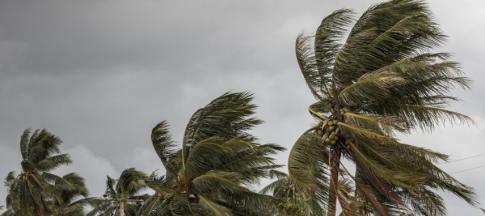
When booking a trip away, it’s easy to lose yourself in the excitement of relaxing by the pool or exploring a new city. We don’t want to spend time worrying about airport delays or being stranded in an unknown place.
But knowing how to prepare for and handle these unfortunate realities makes unexpected travel disruptions easier to deal with.
Here’s how to claim the reimbursement you're entitled to if your holiday doesn’t go to plan.
Can I get my money back for cancelled or delayed flights?
You have a number of rights under UK law if you’re:
- Flying from a UK airport on any airline
- Arriving at a UK airport on an EU or UK airline
- Arriving at an airport in the EU on a UK airline
If the airline is responsible for a delay of more than three hours beyond the scheduled arrival time or it’s cancelled entirely, your airline must compensate you or offer an alternative flight.
If it’s because of a situation outside the airline’s control like security risks and dangerous weather, your airline isn’t legally required to compensate you. But your travel insurance provider may be able to, depending on your level of cover.
Reimbursement for ATOL protected holidays
An Air Travel Organiser's Licence (ATOL) is a financial protection scheme run by the Civil Aviation Authority (CAA).
Package holidays bought from an ATOL protected tour operator are covered by the company you booked the holiday with.
This means that if your holiday is affected due to a company going into administration, your tour operator must provide alternative travel or accommodation for you, as well as cover any additional costs incurred.
However, this only applies to ATOL protected package holidays – if you booked your flights and accommodation independently, you won’t have ATOL protection.
Travel disruption cover as part of your travel insurance policy
When compensation can’t be claimed from the airline or travel agent you booked your holiday with, your travel insurance provider may be able to reimburse you.
All insurance policies are different, so read your policy to check if you can make a claim (not all policies (including us) have travel disruption cover as standard).
Common issues covered by travel disruption cover include strikes and industrial action, dangerous weather, closed airspace and company insolvencies.
Individual policies vary in cover levels but often include the cost of alternative travel and accommodation for successful claims. Some may also cover expenses such as visas, airport parking and car hire.
Claiming a refund from your credit card provider
Thanks to Section 75 of the Consumer Credit Act, anything you buy between £100 and £30,000 on your credit card is protected.
So, if you’ve booked a holiday on your credit card and your flight operator or hotel goes bust, you can get a full refund from your credit card provider.
Where possible, it’s helpful to use a credit card rather than a debit card for anything over £100, as the latter doesn’t protect you in these circumstances.
Claiming a refund from your debit or prepaid card provider
If you don’t have a credit card, a debit card still offers some protection called Chargeback, which is a scheme which works for Visa Debit, Maestro, Visa Electron and MasterCard Debit.
Similar to Section 75 of the Consumer Credit Act, Chargeback lets you get a refund from your bank for expenses under £100 if a company goes into administration.
So, if you’ve booked a flight or a hotel room on your debit card and your flight operator or hotel goes bust, you can get a refund from your debit card provider.
Things to look for in your travel insurance policy
Nobody wants to be left out of pocket – or worse, stuck abroad with nowhere to stay – if their travel plans end up being disrupted.
Check whether your travel insurance provider accepts claims in the following potential scenarios.
War and terrorism
War and terrorism can make travelling to certain parts of the world dangerous. Affected areas are listed by the Foreign, Commonwealth and Development Office (FCDO), who advises against travelling to regions affected by civil unrest.
If you’ve chosen to travel to such a location, it’s unlikely that your insurer will pay out for a claim, unless the advice is issued during your stay in the affected area.
Before buying travel insurance, check the destination you are travelling to is covered.
Admiral Travel Insurance will cover cancelling or cutting short your trip in the event of a terrorist attack so long as the Foreign, Commonwealth & Development Office (FCDO) advises against ‘all travel or all but essential travel' after you took out the policy or booked your trip, whichever is later.
Natural disasters and volcanic ash clouds
Since the 2010 Icelandic volcano ash cloud wreaked havoc across Europe, some insurers offer protection against ash clouds.
Natural disasters such as hurricanes, earthquakes and wildfires may be covered in your insurance policy, although some plans specifically exclude natural events, classifying them as ‘acts of God’.
If you’re travelling to somewhere that’s known to be affected by natural disasters, make sure that your insurance policy covers you against them.
Read more about how travel insurance can protect you from natural disasters.
Travel companies going bust
‘Scheduled airline failure insurance’ (SAFI) and ‘end supplier failure’ are two types of cover you could consider buying but be aware that your SAFI provider will only pay out if you’ve gone through all of the previously mentioned options first.


